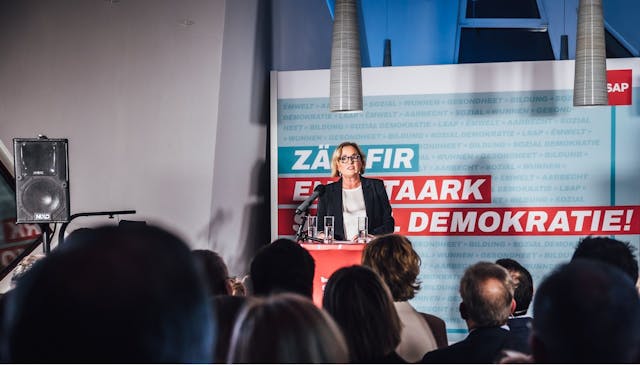Highlights of the week 14-20 October

Anastacia Dvi, Unsplash
The research, which won an honourable Nobel Prize, has once again shown how much we still don't know about the world around us and how modern technology is helping scientists delve deeper into the mysteries of the universe.
Nobel Prize 2024
The Nobel Prize winners in all 6 categories were announced this week. This is one of the most important events in the world of science, because each time the winners show that there are many more phenomena in the world that humans can study and understand and then apply to their benefit.
Physics
This year's Nobel Prize in Physics was awarded to John Hopfield and Geoffrey Hinton for using the tools of physics to develop the methods behind today's powerful machine learning algorithms. Hopfield created associative memory, which can store and retrieve images and other types of data, while Hinton invented a method to automatically find properties in data, such as identifying specific elements in images.
The laureates' work with artificial neural networks began back in the 1980s. Hopfield applied physics to characterise materials and developed a network that updates node values to reconstruct low-energy images. Hinton used the Boltzmann network to learn to recognise characteristic elements in data, applying the tools of statistical physics. These advances have already yielded significant benefits, including the development of new materials with defined properties.
Chemistry
The 2024 Nobel Prize in Chemistry has been awarded to David Baker, Demis Hassabis and John Jumper for their discoveries in the field of proteins. David Baker has successfully designed entirely new types of proteins, while Hassabis and Jumper have created an AI model that has solved the perennial problem of predicting complex protein structures. These advances offer huge opportunities for science and medicine.
Proteins play a key role in the chemical reactions necessary for life and function as hormones, antibodies and tissue building blocks. Using AlphaFold2, a model developed by Hassabis and Jumper, it is now possible to predict the structures of virtually all known proteins, enabling research into antibiotic resistance and the creation of new materials. These discoveries greatly facilitate the understanding of proteins and their functions, which will be of inestimable benefit to mankind.
Medicine
The 2024 Nobel Prize in Physiology or Medicine has been awarded to Victor Ambros and Gary Ruvkun for their discovery of the basic principle of gene activity regulation. All the information stored in chromosomes is similar to the instructions for the cells in our body. Although all cells contain the same set of chromosomes and genes, different cell types, such as muscle and nerve cells, have their own unique characteristics due to gene regulation.
Ambros and Ruvkun stadied how different cell types develop and discovered microRNAs, a new class of small RNA molecules that play a key role in gene regulation. This opened up a new dimension in understanding gene regulation and has become important for multicellular organisms, including humans. The human genome is now known to encode more than a thousand microRNAs that are crucial for the development and function of organisms.
Literature
The Prize for Literature has been awarded to Korean writer Han Kang. She began her career in 1993 as a poet, but since then she has mainly written novels and short stories. In her writing, she confronts historical traumas and invisible sets of rules, and in each of her works she reveals the fragility of human life. She has a unique understanding of the relationship between body and soul, the living and the dead, and her poetic and experimental style has made her an innovator in contemporary prose. Her works include 'The Vegetarian', 'Human Acts' and 'We Do Not Part'.
Peace Prize
During the dropping of two atomic bombs on Hiroshima and Nagasaki in August 1945, about 120,000 people died, an equal number died later from burns and radiation injuries. About 650,000 people survived the attacks. In Japan, they are called Hibakusha (Hibakusha). The plight of the survivors went unnoticed for a long time until, in 1956, local Hibakusha associations joined with the victims of the nuclear tests in the Pacific to form the Japanese Confederation of Atomic and Hydrogen Bomb Victims' Organisations, abbreviated as Nihon Hidankyo.
Nihon Hidankyo has two main goals: to protect the social and economic rights of all hibakusha, including those living outside Japan, and to ensure that no one else experiences the catastrophe that befell the hibakusha. Through testimonies, Nihon Hidankyo conducts extensive educational work on the catastrophic humanitarian consequences of nuclear weapons, and its motto is "No More Hibakusha".
Economy
The winners of the 2024 Nobel Prize in Economic Sciences - Daron Acemoglu, Simon Johnson and James Robinson - have demonstrated the importance of public institutions for national prosperity. Their research shows that societies with poor rule of law and exploitative institutions are incapable of development and improvement. The laureates' research explains why differences in the prosperity of countries depend largely on the institutions introduced during colonisation.
During colonisation, Europeans changed the institutions in the regions they conquered, in different ways in different places. In some cases, the aim was to exploit the indigenous population, while in others it was to create inclusive political and economic systems for the long-term benefit of migrants. The laureates note that inclusive institutions have tended to be established in poor countries, helping them to prosper over time. In contrast, countries with extractive institutions remain trapped in low economic growth because such institutions provide short-term benefits to ruling elites, making it difficult to trust promises of future improvement.





